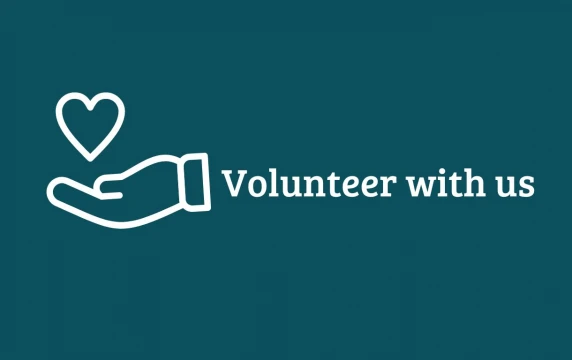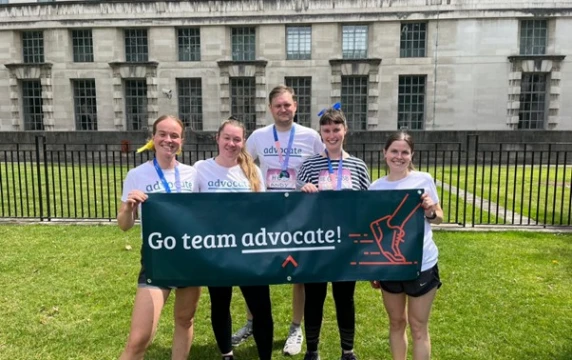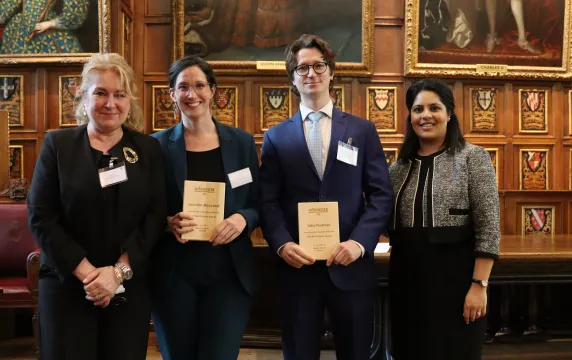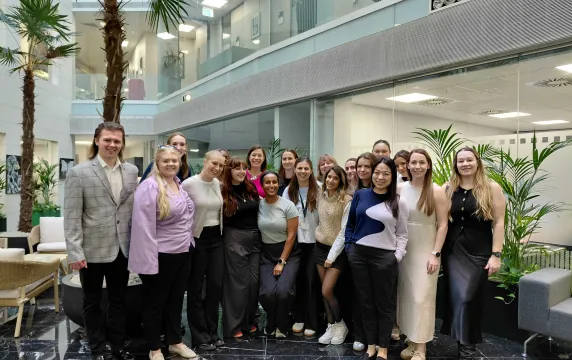At what stage in your career did you take on your first pro bono case?
During my BPTC year, I was a Free Representation Unit volunteer, acting pro bono in welfare benefits appeals. I was also a student adviser in the legal advice centre at my BPTC provider, working in a pair with another student to offer telephone and written advice on a variety of legal issues, ranging from landlord and tenant to family law.
Why did you decide to undertake pro bono work?
I was about to apply for pupillage for the first time and I realised that what was really lacking from my CV was a lack of experience managing my own caseload. I wanted to build that up. As I did more and more, I got a real buzz from helping very vulnerable clients achieve positive outcomes. So, I kept going.
Once I got to the Bar, I initially did pro bono work as a second-six pupil whenever I had space in my diary. I was just starting out “on my feet” and it was a good way to get advocacy experience and feel more confident in court.
What I found once I became a family barrister is that legal aid has been decimated in this area of law, particularly in private law children disputes. This means a number of very vulnerable people with no knowledge of the law are being forced to represent their own interests in court (often not very well, through no fault of their own). I wanted to try and redress the balance somewhat so I help whenever I can. This is my bit to mitigate the damage caused by an inadequate and underfunded legal aid system.
What was the most memorable case you worked on, and what did you do?
To date, my benefits appeals with the Free Representation Unit as a student remain my most memorable cases. My clients suffered from a range of physical and mental health difficulties. They were being set up to fail by the welfare system. The law in that area is narrow and prescriptive and often fails to capture the full impact of people’s health conditions on their ability to live their lives day to day. All of my appeals were successful (which perhaps says less about my abilities and more about the inadequacies of the system). Knowing that my work helped to make my clients’ lives a little bit easier moving forward is all I could ask for from this job.
What effect did pro bono work have on your career?
Sometimes being a family lawyer can be disillusioning. By and large, I love my job. But I do have days where I struggle to see what value I add; maybe there’s a case that has been going on for years and years with minimal progress; or a family that seems unable to escape a cycle of deprivation; or a client who I’ve managed to help but then they reverse all the hard work with their subsequent actions.
With pro bono work, I know what value I add. I know that things could have been much worse if my client had been unrepresented. I know that even just having me by their side will make them feel more empowered. It’s those moments of feeling useful that remind me why I’m doing this job and it keeps me going.
What is the most rewarding thing about doing pro bono work?
My favourite part is contacting a client to let them know that I’ll be assisting them. The relief is palpable once they realise that they’re no longer “going it alone”. Being able to give that feeling to someone is the reason I come back to Advocate to volunteer again and again.
What advice would you give to any barrister unsure about whether to start doing pro bono work?
What are you waiting for!?
Committing to assisting a client via Advocate is a commitment to assist with a specified piece of work. Even if you only have a couple of hours to help out, that’s fine. You aren’t necessarily agreeing to represent that client until kingdom come. Hopefully that goes some way to easing barristers’ anxieties about not having the capacity to do pro bono work.







